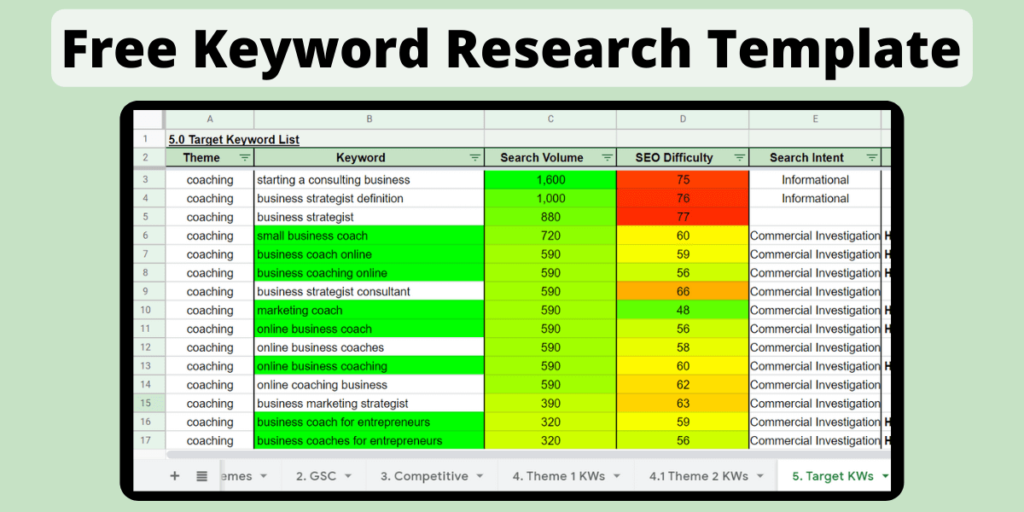introduction:
How To Do Keyword Research for YouTube?Keyword research is a crucial step in optimizing your YouTube videos for search engines and audience discovery. “Hello! I’m here to help you with your YouTube keyword research. Let’s dive in and find the best keywords to optimize your videos for search engines and attract more viewers!”By understanding what people are searching for, you can tailor your content to meet their needs and increase the chances of your videos being fou.
How To Do Keyword Research for YouTube?
1. Understand Your Audience :

Define Your Target Audience:
Identify who your videos are for. What are their interests, demographics, and preferences?
– Research Their Search Behaviour:
Use tools like Google Trends, YouTube Analytics, and social media insights to understand what topics are popular among your audience.
2. Brainstorm Seed Keywords :
– Start with Broad Topics:
List down general topics relevant to your channel’s niche.
– Use YouTube Autosuggestion:
Start typing your topics into the YouTube search bar to see what suggestions come up. These are popular search queries related to your topic.
3. Use Keyword Research Tools :
– YouTube Filters:
Use YouTube’s search filters to find popular keywords related to your niche.
– Google Keyword Planner:
This tool can provide insights into search volume and competition for specific keywords.
– Keyword Research Tools:
Tools like SEoMrush, Ahrefs, and VidIQ can help you find relevant keywords and analyze their search volume and competition.
4. Analyze Keyword Metrics:
-Search Volume:
Look for keywords with a high search volume to maximize your video’s reach.
-Competition:
Choose keywords with moderate competition to increase your chances of ranking.
– Relevance:
Ensure the keywords are relevant to your video’s content and your audience’s interests.
Nominated:
– Target Specific Phrases:
Long-tail keywords are longer and more specific. They often have less competition and can attract a highly targeted audience.
– Use Question Keywords:
Consider keywords that are questions people commonly ask related to your niche.
6. Focus on User Intent :
– Understand Search Intent:
Determine whether people are looking for information, entertainment, or solutions to a problem.
– Create Content that Matches Intent:
Tailor your video content to match the intent behind the keywords you target.
7. Stay Updated and Adapt :
– Monitor Trends:
Keep an eye on trends and changes in your niche to stay relevant.
– Update Your Keywords:
Regularly update your keyword strategy based on new trends and audience behavior.
What is keyword research?

By following these steps and continually refining your keyword strategy, you can improve your YouTube SEO, reach a larger audience, and grow your channel.Keyword research is the process of identifying the specific words and phrases (keywords) that people use when searching for information on search engines like Google or platforms like YouTube.
The goal of keyword research is to understand what your target audience is searching for online, so you can optimize your content to match their search queries. In the context of YouTube, keyword research helps YouTubers identify popular and relevant keywords related to their video content.
By incorporating these keywords into their video titles, descriptions, tags, and even the content itself, creators can improve the visibility of their videos in search results and attract more viewers.
Keyword research also helps creators understand their audience better and tailor their content to meet their needs and interests.
Why is keyword research for YouTube?

Keyword research for YouTube is important kit for several reasons:
1.SEO (Search Engine Optimization):
YouTube is the second largest search engine after Google, and people use it to find videos on specific topics. By targeting the right keywords, you can improve your video’s chances of appearing in search results, increasing its visibility and reach.
2.Audience Targeting:
Keyword research helps you understand what your target audience is interested in and searching for. By creating content around these keywords, you can better connect with your audience and attract more viewers who are interested in your content.
3.Competition Analysis:
Keyword research allows you to see what keywords your competitors are targeting and how well their videos are performing. This information can help you identify gaps in the market and find opportunities to create content that stands out.
4.Content Ideas:
Keyword research can also inspire new content ideas. By exploring different keywords and topics, you may discover new angles or niches that you haven’t explored before, helping you create more engaging and valuable content for your audience.
Overall, keyword research is essential for optimizing your YouTube channel and videos for search engines, improving your visibility, attracting more viewers, and growing your audience.
Keyword research for template

Using a keyword research template can streamline the process of keyword research for YouTube by providing a structured format to organize your findings.
Here are some reasons why using a template can be beneficial:
1.Organization:
A template helps you keep track of the keywords you’ve researched, including their search volume, competition, and relevance to your content. This organization can prevent you from duplicating efforts and ensure you have a comprehensive list of keywords to target.
2. Efficiency:
With a template, you can quickly input and compare keyword data, saving you time and effort compared to manual tracking or scattered notes.
3. Focus:
Templates often include specific fields for important metrics like search volume and competition, helping you prioritize keywords that are most likely to drive traffic to your videos.
4.Collaboration:
If you’re working with a team or seeking input from others, a template can serve as a centralized document for everyone to contribute to and reference.
5.Analysis:
Templates can help you analyze keyword trends over time, allowing you to make informed decisions about which keywords to target in your videos.
Overall, using a keyword research template can help you stay organized, save time, and make more informed decisions about your YouTube content strategy.
Analyze your competitors and videos
Here are some key aspects to consider when analyzing competitor videos:
- 1.Content
- 2. Engagement
- 3.S E O
- 4.Production Quality
- 5.Audience Interaction
Analyzing your competitors’ videos can provide valuable insights into what works well in your niche and help you identify opportunities to improve your own content strategy.
Why Technology is Good: Unveiling the Multifaceted Benefits in the Modern Era.





